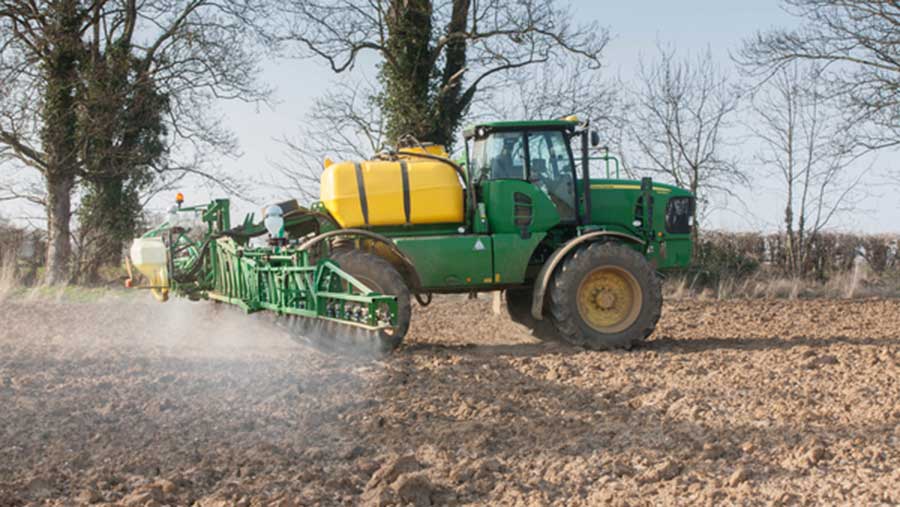EU scientists say glyphosate ‘unlikely’ to cause cancer
 © Tim Scrivener
© Tim Scrivener The European Food Safety Authority (Efsa) says that the pesticide glyphosate is unlikely to cause cancer – but has still proposed tighter control measures.
The assessment comes in a report by Efsa scientists which concludes that glyphosate is unlikely to pose a carcinogenic hazard to humans.
See also: Call to ban glyphosate on milling wheat
But the report – published on Thursday (12 November) – also proposes a safety measure that seeks to tighten the control of glyphosate residues in food.
The conclusion will be used by the European Commission in deciding whether or not to keep glyphosate on the EU list of approved active substances.
It will also be used by EU member states to reassess the safety of pesticide products containing glyphosate that are used in their territories.
A peer review expert group has set an acute reference dose (ARfD) for glyphosate of 0.5mg/kg of bodyweight, the first time such an exposure threshold has been applied to the substance.
Jose Tarazona, head of the Efsa pesticides unit, said: “This has been an exhaustive process – a full assessment that has taken into account a wealth of new studies and data.
“By introducing an acute reference dose we are further tightening the way potential risks from glyphosate will be assessed in the future.
“Regarding carcinogenicity, it is unlikely that this substance is carcinogenic.”
The peer review group concluded that glyphosate is unlikely to be genotoxic – or damaging to DNA – or to pose a carcinogenic threat to humans.
Glyphosate is not proposed to be classified as carcinogenic under the EU regulation for classification, labelling and packaging of chemical substances.
All experts but one agreed that neither the epidemiological data nor the evidence from animal studies demonstrated causality between exposure to glyphosate and cancer in humans.
The Efsa also considered a report published by the International Agency for Research on Cancer (Iarc), which classified glyphosate as probably carcinogenic to humans.
Efsa said the evaluation considered a large body of evidence, including a number of studies not assessed by the Iarc which is one of the reasons for reaching different conclusions.
As well as introducing the ARfD, the review proposed other toxicological safety thresholds, including an acceptable operator exposure level (AOEL) of 0.1mg/kg bodyweight per day.
The review also proposed an acceptable daily intake (ADI) for consumers in line with the ARfD at 0.5 mg/kg bodyweight per day.
Dr Tarazona said Efsa would use the new toxicological values during a review of the maximum residue levels for glyphosate in food to be carried out in 2016.

